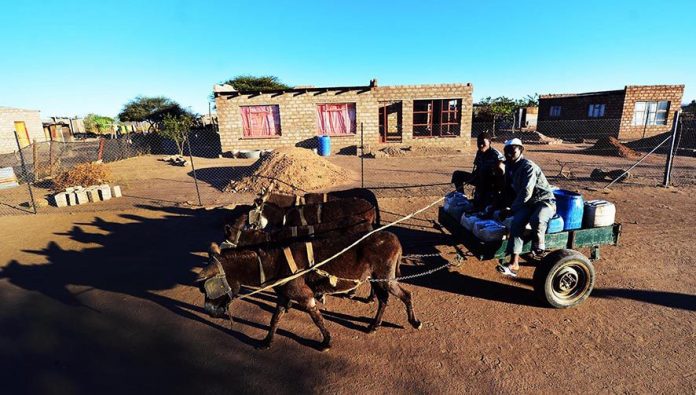By Bonang Mohale
With the lowest levels of confidence, trust and hope, South Africa is desperate for some good news, and Banyana Banyana did the whole country proud on Wednesday morning, at the start of Women’s Month, by being the first national team to win, beating Italy 3-2, thereby qualifying for the knock-out stages, and reaching the Top 16 in a World Cup.
This feat is achieved with a team that is not yet recognised, supported, professional – nor paid the same as Bafana Bafana, and had to protest at, among others, being relegated to play at a less than acceptable stadium.
Just like the share price is driven by rumour and speculation, a country’s outlook and performance are driven by sentiment and sport has an effect to change the national psyche and mood like no other.
South Africans owe Banyana Banyana a debt of gratitude for being a vessel of a better today because deeper rivers flow in majestic silence, the best wine comes from struggling vines, the purest ore is produced from the hottest furnace, the brightest thunderbolt is elicited from the darkest storm and great works and achievements are not performed because of strength but because of perseverance.
South Africa has been helped by global events.
Currently, the world has its challenges – the energy supply crisis; cost of living crisis; rising inflation; food supply crisis and cyberattacks on critical infrastructure are among the top risks for 2023. The global economy has begun to improve.
The outlook projects a moderation of global GDP growth from 3.3% in 2022 to 2.7% in 2023, followed by a pick-up to 2.9% in 2024.
The decline in inflation is due to tighter monetary policy taking effect, lower energy and food prices and reduced supply bottlenecks.
The expectation is that monetary policy should remain restrictive until there are clear signs that underlying inflationary pressures are reduced.
Fiscal support should be scaled back, becoming more targeted and calibrated toward future needs. Broad energy-related support should be withdrawn as energy prices fall and minimum wages and welfare benefits increased to take account of past inflation in many countries.
Fiscal policy should prioritise productivity-enhancing public investments, including those driving the green energy transition and boosting labour supply and skills.
In 2011, the government launched the National Development Plan 2030 to eliminate poverty and reduce inequality by growing an inclusive economy and building the capabilities of South Africans.
Too few South Africans in work; the quality of school education for most black people is sub-standard; poorly located and inadequate infrastructure limits social inclusion and faster economic growth; spatial challenges continue to marginalise the poor; South Africa’s growth path is highly resource-intensive and unsustainable; the ailing public health system confronts a massive disease burden; the performance of the public service is uneven; corruption undermines state legitimacy and service delivery remains a divided society.
The strategy outlined in the NDP includes, improving the quality of basic education; building human capacity in teaching and school management; developing ICT infrastructure and incorporating ICT into education for all schools and developing and establishing workplace-integrated learning programmes.
All experts are unequivocal, that with six years to go, we are highly unlikely to achieve these noble goals.
Instead, South Africa’s economic and social challenges are mounting, risking stagnation amid an unprecedented major energy crisis, most pronounced in the persistent loadshedding and poor governance, among others.
All of us need to work collectively, in a proactive manner, to achieve inclusive socio-economic growth, development and transformation, We should focus on job creation, service delivery and good public sector governance; a reformed fiscal system; cutting red tape and improving effective regulatory governance including digital literacy to anticipate jobs of the future and transformation to ensure the economy is reflective of the demographics, especially gender social justice.
Stable and reliable and predictable energy, including renewable sources, are a must.
Improvement of transport (roads, railways and ports) and information and communication technology – both rural and urban development, including smart cities – should be enhanced.
Food security, social security, and private sector development, especially, small medium and micro enterprises, are important imperatives – including public private partnerships, among others.
SA is the third largest country in Africa. It has a diversified and developed economy and an advanced infrastructure.
It is one of the world’s largest exporters of gold, platinum, and other natural resources, and must graduate to beneficiating locally.
• Mohale is the chancellor of the University of the Free State, president of Business Unity SA and author of the best-selling books, Lift as You Rise and Behold the Turtle
Follow @SundayWorldZA on Twitter and @sundayworldza on Instagram, or like our Facebook Page, Sunday World, by clicking here for the latest breaking news in South Africa.



